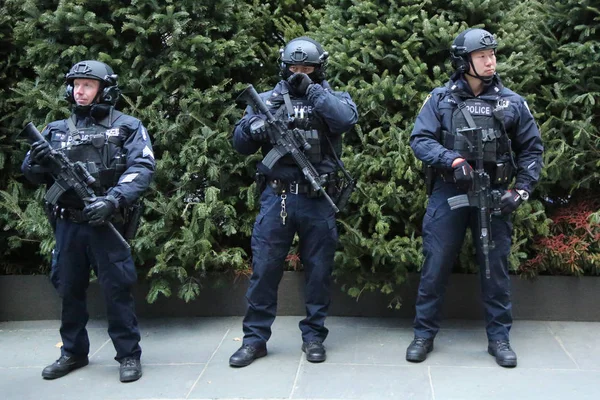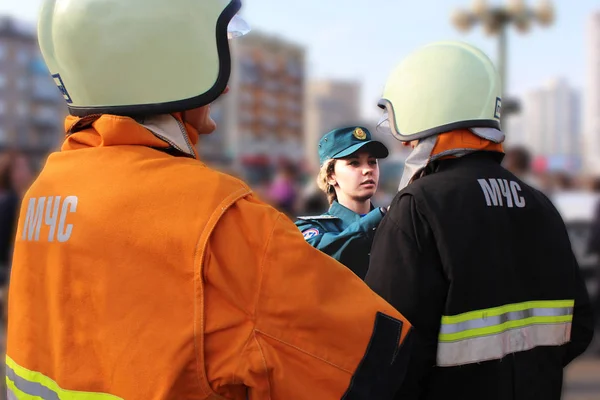Mastering Crisis: The Comprehensive Guide To Emergency Officer Training
In a world fraught with uncertainties, mastering crisis management is not just a skill, but a necessity. Whether it's a natural disaster, a technological malfunction, a health crisis, or a security threat, being prepared to tackle emergencies effectively is paramount. This comprehensive guide aims to delve into the realm of emergency officer training, providing insights, strategies, and techniques to equip individuals with the skills needed to navigate through crises seamlessly.
Understanding Crisis Management
The Fundamentals of Crisis Management
The fundamentals of crisis management entail a systematic approach to identifying, assessing, responding to, and recovering from disruptive events. It involves proactive preparation, clear communication, and swift decision-making to mitigate harm and restore normalcy. By understanding the nature of crises and implementing robust response plans, organizations can minimize impact and maintain stability. Fundamentals also encompass continuous learning and adaptation to enhance resilience in the face of evolving threats.
Types of Crises
Types of crises encompass a broad spectrum, including natural disasters like earthquakes and floods, technological crises such as cyber-attacks and system failures, health emergencies like pandemics and outbreaks, and human-made crises like terrorism and industrial accidents. Each type presents unique challenges and requires tailored response strategies. Understanding the characteristics and implications of different crises enables organizations to effectively prepare, respond, and recover, thereby minimizing harm and preserving continuity.

Training for Crisis Management
Essential Skills for Emergency Officers
Essential skills for emergency officers include leadership, communication, decision-making, and adaptability. Leadership skills enable officers to guide teams and coordinate response efforts effectively. Clear and concise communication is crucial for disseminating information and maintaining coordination among stakeholders. Quick and informed decision-making ensures timely responses to evolving crisis situations, while adaptability allows officers to adjust strategies based on changing circumstances.
Simulation Exercises
Simulation exercises are invaluable tools for training emergency officers in crisis management. These exercises replicate real-life scenarios in a controlled environment, allowing participants to practice response tactics and decision-making skills. From tabletop simulations to full-scale drills, these exercises enhance preparedness and coordination among response teams. By simulating various crisis scenarios, officers can identify strengths, weaknesses, and areas for improvement in their response protocols.
Role of Technology in Training
Technology plays a crucial role in training emergency officers for crisis management. Virtual reality (VR) and augmented reality (AR) simulations provide immersive and realistic training environments, enabling officers to practice response tactics in lifelike scenarios. Computer-based training modules offer interactive learning experiences, allowing officers to acquire essential skills and knowledge at their own pace. Additionally, technology-driven solutions facilitate remote training and collaboration, ensuring that officers are well-prepared to handle crises regardless of their location. Click here to know more.
Best Practices in Crisis Management
Certainly, here are the best practices in crisis management summarized into four key points:
- Preparedness and Planning: Develop comprehensive crisis response plans tailored to various scenarios, ensuring clear roles, communication channels, and contingency measures are in place.
- Effective Communication: Establish robust communication strategies to disseminate accurate information promptly, maintain stakeholder trust, and coordinate response efforts internally and externally.
- Collaborative Approach: Foster collaboration among internal teams and external stakeholders, including government agencies, NGOs, and the community, to leverage resources, expertise, and support during crises.
- Continuous Improvement: Conduct thorough post-crisis evaluations, learn from successes and shortcomings, and implement improvements to enhance resilience and readiness for future crises.

Advanced Training Techniques for Emergency Officers
Advanced Simulation Methods
Advanced simulation methods, such as augmented reality (AR) and virtual reality (VR), provide immersive crisis training environments for emergency officers. By replicating real-world scenarios, these technologies enable officers to practice decision-making and response tactics in a risk-free setting. Through hands-on experience, officers develop critical skills and enhance their preparedness to effectively manage crises. Additionally, advanced simulations allow for scenario repetition, facilitating continuous learning and improvement in crisis management proficiency.
Cross-Training and Interdisciplinary Collaboration
Cross-training and interdisciplinary collaboration are essential components of effective crisis management. By exposing emergency officers to diverse perspectives and skills, cross-training fosters a more holistic approach to handling emergencies. Additionally, collaboration with stakeholders from various disciplines enhances coordination, resource sharing, and response efficiency during crises. Through cross-training and collaboration, emergency officers can leverage a broader range of expertise and resources to address complex challenges effectively.
Leadership Development and Crisis Decision-Making
Leadership development is crucial for empowering emergency officers to navigate crisis situations with confidence and clarity. Through specialized training, officers acquire essential skills such as strategic thinking, team building, and emotional intelligence. This enables them to make timely and effective decisions under pressure, ensuring a coordinated and decisive response to crises. By investing in leadership development, organizations can cultivate a cadre of skilled leaders capable of guiding teams through challenging circumstances with resilience and resolve.
Emerging Trends and Technologies in Crisis Management
Artificial Intelligence and Data Analytics
Artificial intelligence (AI) and data analytics are transforming crisis management by providing organizations with powerful tools for predictive analysis and decision support. AI algorithms can analyze vast amounts of data in real-time, detecting patterns and anomalies to anticipate emerging threats. Data analytics enable organizations to extract actionable insights from diverse data sources, informing more informed decision-making during crises. By harnessing AI and data analytics, emergency officers can gain valuable insights and enhance the effectiveness of their response efforts.
Unmanned Aerial Vehicles (UAVs) and Remote Sensing Technologies
Unmanned aerial vehicles (UAVs) and remote sensing technologies have transformed crisis response by offering aerial reconnaissance and mapping capabilities in inaccessible areas. Equipped with cameras and sensors, UAVs provide real-time data, enhancing situational awareness for emergency officers on the ground. Additionally, remote sensing technologies, such as satellite imagery, complement UAV data, providing comprehensive insights to support informed decision-making during crises. Leveraging UAVs and remote sensing technologies enables more efficient and effective response efforts, ultimately saving lives and minimizing damage.

